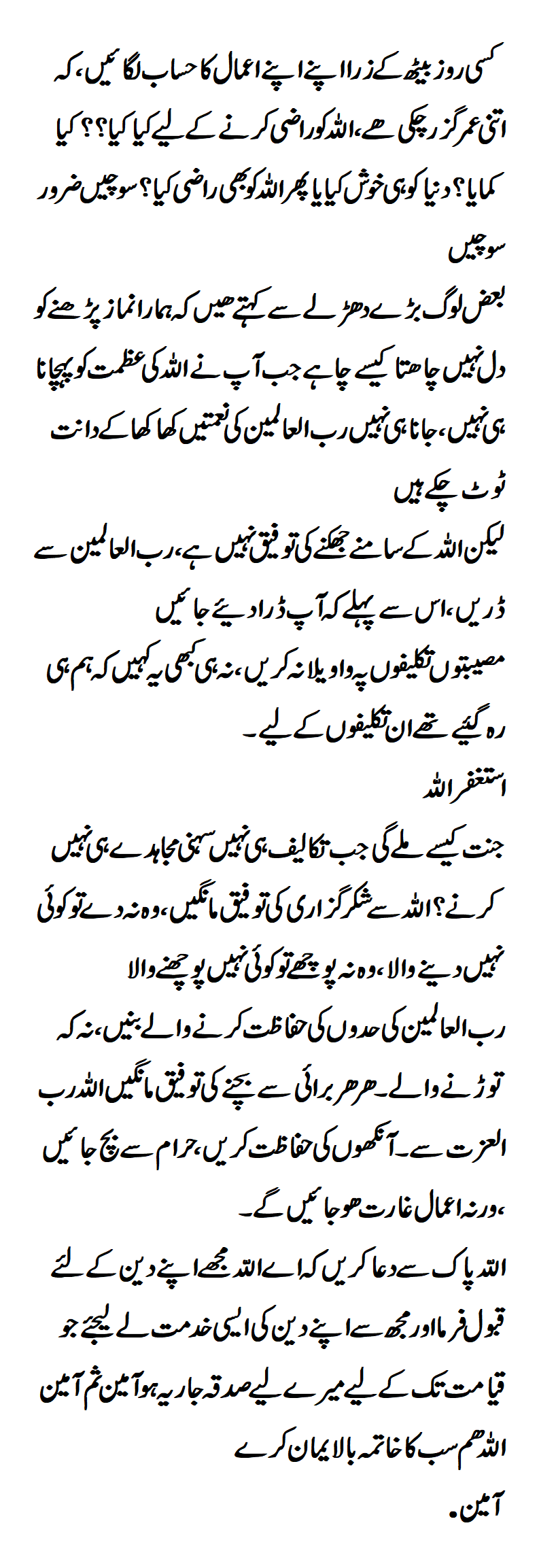Whether the fate of man is predestined or he himself is the architect of it, is a question which has been very often discussed by scholars of all times. This problem is significantly important as no sensible man. not even the man in the street, can afford to ignore it. Faith in Taqdir (Destiny) has a very deep impact upon our lives and we always find our lives oscillating between determinism and freewill.
As a man looks around himself and looks to his own self and within himself, he finds that there are hundred and one things in shaping and reshaping of which he has no hand, e.g. in determining the climate of the land in which he is born, in canalising the courses of rivers which flow therein and in determining the nature of the soil thereof. He finds himself absolutely powerless.
As he looks to himself he finds that there are so many things In him which are beyond his control, viz. the measure of intellect he has been endowed with, the shape and form of his physical structure with which he has been sent to this world, and the inclinations and so many other qualities of head and heart which are embedded in his very nature. In all these aspects of life he finds himself helpless before the Great and Mighty Power that created him.
On the other hand, there are so many things in which man finds himself quite empowered. As he looks to the marvellous achievements of man despite all odds, he finds it difficult to believe that he is a mere puppet in the mighty hand of Nature. This problem of predestination and freewill, in which man finds his life hanging, has been adequately solved by the Qur’an and the Sunnah. We give below a brief summary of their elucidations.
The first principle which Islam lays down in regard to Taqdir is that man is neither completely the master of his fate nor is he bound to the blind law of predestination. So far as the sovereignty of Allah’s Will is concerned, it is all-pervading and nothing falls outside its orbit. Not even a leaf, therefore, stirs without His Will.
It is His Will that prevails everywhere. To God belongs the sovereignty of Heavens and the Earth. He created what He pleaseth, giving to whom He pleaseth females and to whom He pleaseth males or conjoining them males and females, and He maketh whom He pleaseth barren, verify He hath knowledge and power (xlii. 48).
Men are, therefore, completely subordinate to the overruling power of God, they cannot do anything unless God wills so.
“Whom God guideth he is the rightly-guided. Whom he sendeth stray, thou wilt not find a patron to set him right (xviii. 16).
His mighty grasp is, therefore, over everything. The Almighty Lord,Who has created everything and has determined its nature and course, has in His infinite wisdom and mercy conferred upon man a limited autonomy according to which a man is free to do or not to do a certain thing.
It is because of this autonomy enjoyed by man that he is hold accountable for his deeds. The concept of human responsibility and that of his answerability for his deeds and misdeeds becomes meaningless if he is supposed to be deprived of this autonomy. There are, a large number of verses in the Holy Qur’an which make a pointed reference to the autonomy conferred upon man.
